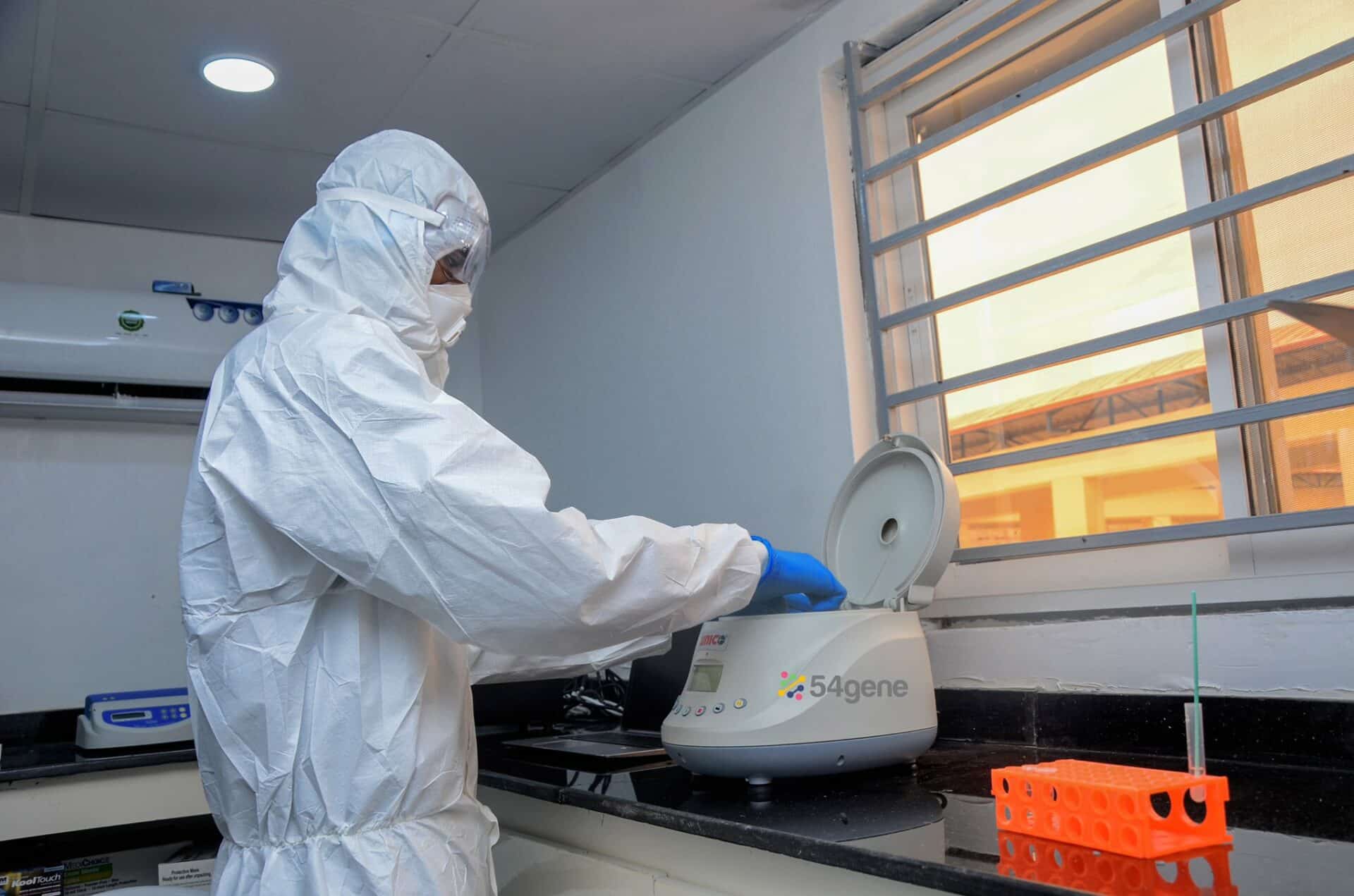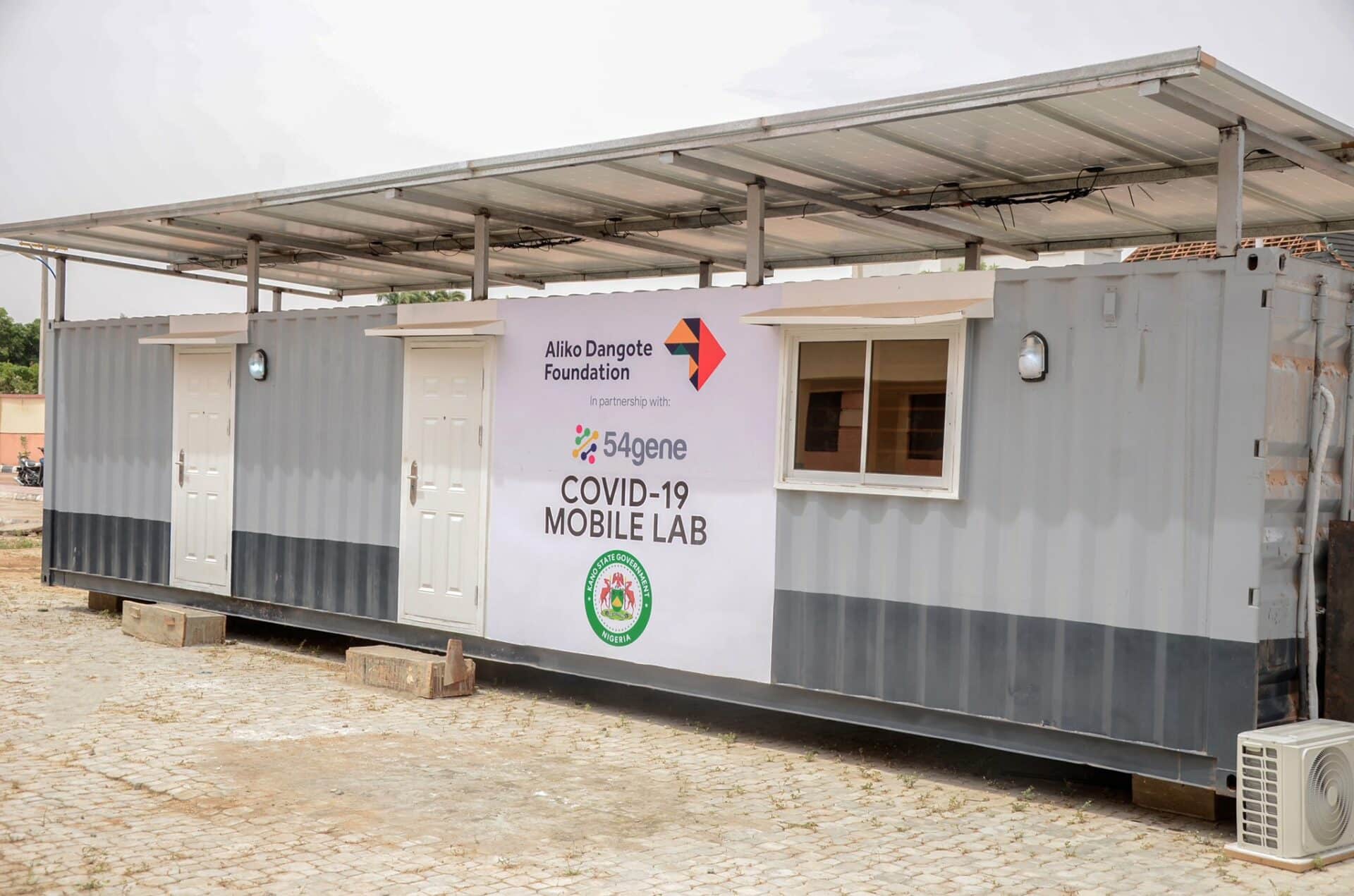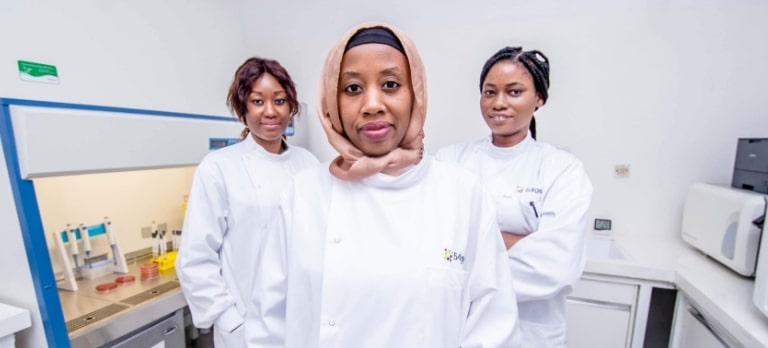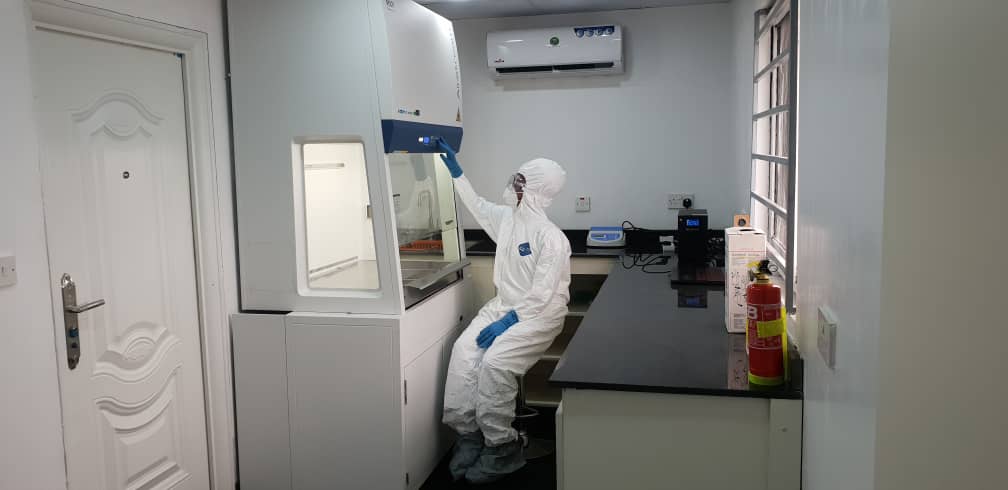54gene is one of the most exciting and innovative startups to come out of Nigeria and Africa in recent times.
Since launching last year, the startup’s premise to address the significant gap in the global genomics market quickly caught the attention of local and international media.
Here’s why. Almost 90% of genetic material used in pharmaceutical research is Caucasian, and less than 3% is African. This is despite research saying that Africans and people of African ancestry are more genetically diverse than all other world populations combined.
Founded by Dr Abasi Ene-Obong, 54gene seeks to solve this problem by including underrepresented Africans in global genomics research.
However, whether in explaining the problems 54gene is trying to solve or how the $19.7m VC-backed startup is solving them, there seems to be some medical jargon that makes it difficult to understand.
As Chief Operating Officer of 54gene, Delali Attipoe oversees the startup’s business operations in Nigeria, Africa, and the US.
In this interview with her, we try to break down and explain what 54gene is all about. From the challenges of equalising healthcare for Africans to the launch of its new genome sequence lab, Attipoe does a great job of telling us why we should care about the startup.
Research says Africans have the most genetically diverse DNA in the world but make up only 2-3% of the world’s genetic database. Also, less than 1% of global drug discovery happens on the continent. What do you think are the reasons behind these findings?
When you think about the concept of “charity begins at home,” most of these Western researchers were researching their locale. So historically, Africans were not the ones driving a lot of the drug discovery research discoveries that we would want to see benefit our African populations or even broadly, beyond that.
How does this affect the average African on the streets of Lagos, Nairobi, or Johannesburg?
As one who has lived in Nairobi and been in and out of Lagos and Johannesburg, I can relate. Just think about what the average person takes for a headache or malaria, or cancer; we all are subject to taking medication at some point or another.
This matters because not all treatments are optimised for the African population. The question then becomes, do we see the health outcomes that we want to see? The answer is no. And when you do not include this African population in the research, we see potentially sub-optimal treatment outcomes. This is how it affects the average person in Africa.
I’m looking forward to a time when the continent isn’t associated with having sub-optimal treatments. And it has been proven that inclusion and participation of the African population in research produces better treatment and diagnostic outcomes in the long run.
Why should Africans in the diaspora care about this oversight?
It is important to know that human genetics migrated to various parts of the world, deliberately or not, from Africa. So the average African in the diaspora, whether they call themselves African or not, should care because modifications over time can be traced back to genetic makeups of ancestors coming from Africa.
Targeted treatments that are developed down the road as a result of changes in our genetics or mutation over time affect Africans in the diaspora.
Though I have Ghanaian parents, I was born in the US so I generally seek out treatments in Western medical systems, clearly because of where I live. However, those treatments are still based upon research from populations that don’t necessarily look like me.
Knowing this problem, how come large pharmaceutical companies with vested interests in the continent haven’t thought to tackle this challenge?
I think I would phrase it differently. I don’t think they haven’t thought about it to be quite frank. I think it’s a case of actually doing something. Pharmaceutical companies have always had vested interests in trying to figure out models where people here can access medication. But now I see more of them trying to figure out how to look at research and make it more inclusive.
For instance, the COVID pandemic, which is a global issue, showed disparities in how it affected different populations. Pharmaceutical companies, despite focusing more on the Western population, are now seeing the value in being able to get more diverse participants into their research because it gives a broader picture of treatment or diagnostics that get developed to help with better outcomes.

Still, because pharma companies aren’t located on the continent, they don’t understand how to facilitate working in various African locations. And at 54gene, we’re trying to tackle that head-on, that’s why we’re establishing our base and operations here. I think pharmaceutical companies need to partner with companies like ours to advance basic research and not just sell to the market. They’ve made investments when it comes to putting their products into the marketplace, but more needs to be done when it comes to the R&D component.
Can you explain what exactly 54gene does so even a non-specialist can understand?
I know some of this terminology was out there earlier, but 54gene is more than just a biobank. We see ourselves as a health technology company deriving insights from the world’s most diverse populations to solve some of healthcare’s biggest challenges.
This involves generating data that can inform treatment and translate research into potential drugs or molecular diagnostics down the road. We also run clinical programmes that help to test drugs and treatments that ensure that we have optimal medicines for our population.
Also, with many African researchers going to work at the world’s top universities and institutions outside the continent, there’s a massive brain drain occurring. We want these scientific minds to stay and bolster our research at home. So, in essence, 54gene is looking for ways to drive a lot more research on the ground. And we do that by undertaking drug-related R&D.
From what I understand this is precision medicine, right? How does it allow for a more targeted approach to healthcare?
Okay, let’s talk about the concept of precision medicine and what that even means. Fundamentally, precision medicine is “do I have the right treatment for the right patient delivered at the right time?” It means leveraging one’s genes and DNA to provide correct targeted therapy.
So imagine, for instance, that there’s a gene called TCC-G — now, there are mutations to genes, and for TCC-G, one of the mutations is TCC-A — and I have it. Also, one of the genetic traits associated with the gene is having dimples. Let’s also say having dimples causes a lot of problems for me and many around the world.

What precision medicine does is make the targeted treatment that is based upon that mutation to effectively get rid of dimples so I can have a better life. What this means is that you’ve developed a treatment based upon genetic mutational drivers that can be beneficial to a population group.
By the way, dimples are great, and I have nothing against them.
Interesting stuff. Can this be compared to what we see in sickle cell anaemia?
Exactly, because it’s a change in people’s genes that causes sickle cell disease. In research, there’s something called gene therapy where targeted drugs are made to fix that genetic mutation. Meaning you now have a young African American lady who no longer has to worry about sickle cell. It’s a recent discovery and development, and the hope is that at some point, it could be distributed to more people.
Africans’ genetic diversity suggests that we can find a lot when we participate in more research. We have variations in DNA which, if looked at, could potentially lead to drug development that would benefit not just our African population but others beyond the continent.
This brings me to the non-communicable and infectious disease categories 54gene says are its primary focus. Sickle cell, for instance, falls under the former and it’s understandable why 54gene is needed. But it’s not clear what the company can do with the latter.
African governments prioritise diseases such as tuberculosis, malaria, and HIV; these are the top three when you talk about infectious disease. Now, anyone can get a disease, but ultimately, it’s not about getting the disease. It’s about how that disease behaves within Tage or Delali or my distant cousin who might be 95% Chinese or Italian brother who’s 50% African.
One of the things that we’ve seen during this pandemic is that infection rates look very different across various populations. Why’s that? First of all, there’s a lot that comes into play when you think about ancestry or what sort of genes get passed through generations.
Also, there are different environmental factors when we compare the modern African man or woman in Senegal today versus somebody who’s five or six generation African American versus the Italian or Chinese in their respective countries. These factors influence the severity of diseases, even infectious ones, and how they operate in one’s body.
And that’s where studying genetics and how specific treatments are developed, based on what they target, will help inform the sort of response it’ll have within a patient. That’s why it’s still important to study infectious diseases.
To be able to carry out these tests, 54gene will collect thousands, and in the future, millions of data samples. How will you ensure that this data is protected?
As 54gene, we have significant operations within the continent, but we’re a global company. And as a global company, we take data protection very seriously, ensuring we adhere to local and international data protection policies such as GDPR or the NDPR.
We also have specific systems and controls that we use around our data, and we employ stringent encryption measures when it comes to privacy. We also have a data protection officer as part of our staff, and this is to ensure that we have the appropriate measures and security in place.
Data protection aside, because we’re doing research and the sensitivity of the studies we’re executing, we make sure we get the full and informed consent of participants. So those are our core practices and they are a part of 54gene’s culture.
Providing mobile test labs is not 54gene’s forte, so why did the company do so during the COVID-19-induced lockdown?
From our perspective, we had the opportunity to contribute and help by partnering with the government and the NCDC because we had the unique skill set that existed because of the type of research and work we were involved in.

So, by being able to have trained scientists in our labs who already knew how to carry out molecular techniques that somehow applied to doing COVID testing, we were able to increase the level of testing on behalf of the government.
Also, because of our creative approach in using a mobile lab, we found ourselves in a unique position to offer assistance more quickly and help in ways a traditional lab might not be able to at the beginning of the pandemic.
Just this month, 54gene launched its first whole human genome sequencing lab with the help of American biotech company, Illumina. What should we expect from this?
Establishing our own human genome sequencing lab is a huge step for us. Now we can sequence and generate the data that informs whether or not we see any sort of variance and insights that can lead to well-regarded publications. Also, it allows us to partner with the research community more to see if there are novel insights we can share that can lead to the development of future therapeutics.
So being able to do that in Nigeria is huge. Historically when you think about doing sequence samples or data generation, most African researchers typically had to send that outside the continent because we didn’t have the facilities.

But now, these samples can stay right here, and data generation can happen on the ground. This can now be done and powered from Africa versus doing all of that outside the continent. It helps to empower the scientific work of African researchers that we partner with in the scientific community.
Featured image source: 54gene COO, Delali Attipoe (Supplied).











